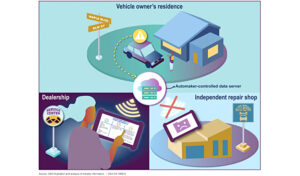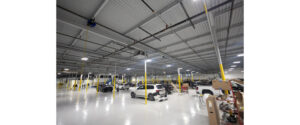California’s new rule is more popular than not among urban voters, and much less so for rural voters when thinking about their own states
California environmental regulators last month voted to ban the sale of any new gasoline-powered vehicles by 2035, a proposal that almost half of U.S. voters say they would oppose in their own states, according to a new Morning Consult/Politico survey and report.
One in three voters would support a ban on sales of new gas-powered vehicles in their state by 2035, though Democrats, urban voters were more likely to support a ban similar to one recently adopted in California.
Respondents were asked if they would support or oppose a ban on the sale of new fossil fuel-powered cars in their state by 2035

Republicans are especially opposed to a ban on sales of new fossil fuel-powered cars by 2035, survey report states
• About 7 in 10 GOP voters said they would oppose a plan like California’s in their own state, while almost 3 in 5 rural voters said the same. Meanwhile, half of Democrats backed the proposal, as did a slightly smaller share of urban voters. Suburban voters’ feelings on the matter were similar to voters overall, with about 1 in 3 supporting the ban.
• Around 1 in 2 voters in the Northeast, Midwest and the South would be against a ban in their own states. Voters out West were split on such a proposal, with 42% in support of and 42% against the ban.
• Climate-concerned voters were 11 percentage points more likely than voters overall to back the proposal (44%). Only 6% of voters who are not concerned with the climate said they would support the measure.
More states to follow California’s lead as state has far-reaching impact on emissions rules across the nation
The California Air Resources Board, one of the state’s environmental regulators, unanimously voted to adopt the Advanced Clean Cars II rule last month, two years after Gov. Gavin Newsom (D) announced it via an executive order. The move will put pressure on automakers to speed up electric vehicle production.
The phaseout will allow people to continue driving gasoline-powered cars and purchase them on the used market after the 2035 deadline. However, the survey report stated that automakers must hit their production targets requiring 35% of new vehicle sales in California to be powered by batteries or hydrogen by 2026. That target moves up to 68% by 2030. Failure to comply will cost automakers a $20,000 fine for each new vehicle sold in violation. The rule does not force car shoppers to purchase EVs.
Automakers will still be allowed to sell up to 20% of plug-in hybrids by 2035, cars whose engines are both gasoline- and electric-powered.
The ban’s implementation will potentially face legal challenges as well as some other critical roadblocks, according to survey report, including the fact that electric vehicles are still expensive for most buyers.
Moreover, the critical minerals market, which is needed to build batteries, is dominated by China, and the overall infrastructure for EVs, such as chargers, is still limited in the United States. The speed of implementation could push down prices for EVs, or it could cause bottlenecks and higher prices.
Neighboring states like Oregon and Washington are already considering their own phaseouts, while New Jersey, New York, Massachusetts and others like Virginia could copy the rule.
The latest Morning Consult/Politico survey was conducted Aug. 26-28, 2022, among a representative sample of 2,007 registered voters, with an unweighted margin of error of plus or minus 2 percentage points.




Comments are closed.